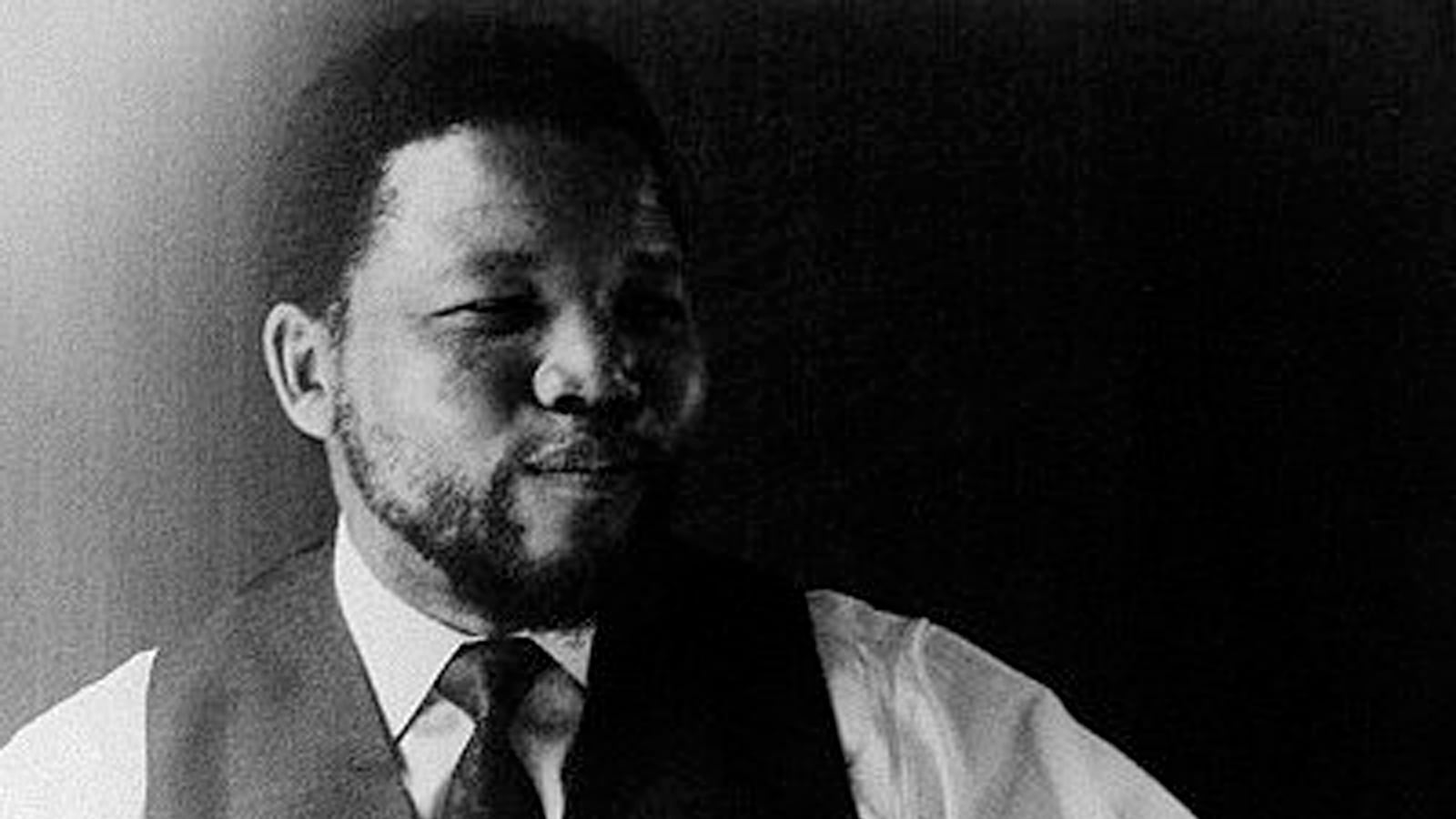Amid the worldwide mourning and praise for Nelson Mandela, memories flood in of past desperate times in South Africa when the entire police force was hunting him. Mandela was in hiding, running a campaign to end apartheid. I was a young reporter on the Rand Daily Mail newspaper in Johannesburg and my beat was black politics. Mandela and I met regularly, secretly at night, on a dark street in Johannesburg, so that he could brief me about his plans.

Improbably, the only disguise used by this tall, burly imposing man was to wear worker's overalls. Yet he got away with it and for months was sheltered by supporters as he moved around the country organizing a giant strike by black workers.
Mandela became known as the Black Pimpernel after the Scarlet Pimpernel of Baroness D'Orczy's novels of the French Revolution: "They seek him here, they seek him there, they seek him everywhere… That demned elusive Pimpernel."
This was 52 years ago, early in 1961. The year before, on March 21, South Africa had been convulsed by the massacre at Sharpeville when police shot and killed 68 black men and women protesting against oppression by the white minority government. The protest had been called by the Pan-Africanist Congress, a rival of Mandela's African National Congress. Driven by the national grief and fury which followed the killings the ANC launched its own action; with the country in turmoil, the government banned both organizations and declared a state of emergency.
Mandela as a leader in the ANC was among the many hundreds who were seized and jailed without trial. Released after five months he set up the All-African Action Council and plunged into organising an outright challenge to white authority. It was, as were all ANC campaigns at that time, to be non-violent: a three-day nationwide strike by black workers to demand a national convention to take South Africa to racial equality. As blacks were forbidden to strike it was called a "stay-at-home" but the cosmetic phrase did not hide the illegality. Mandela became a marked man.
He now took a decision which changed his life and, ultimately, transformed South Africa and brought him world fame: he went underground, abandoning his family and his livelihood.
It was a sacrifice of epic proportions and courage. Mandela was an attorney, one of only about twenty among the hundreds of thousands of black people in the city of Johannesburg. Although forced by law to live in Soweto, the new, expanding ghetto for blacks outside the city, he led a stylish existence way above the poverty around him. Handsome and well-dressed, he was happily in his second marriage, to Winnie, a beautiful and glamorous social worker. They lived in a tiny house, not much bigger than a large American living-room, with their two young daughters. He even owned a car, rare among blacks.
Their friends included whites he had met while studying law at the University of the Witwatersrand in Johannesburg, also something exceptional for blacks. One of them, Jules Browde, a lawyer who later was to act for the defence in many apartheid trials, told Mandela that as he and his wife were going out one night and leaving their son of four with a black nanny, the child cried: "I don't want to be left with a black face." Browde was upset: "We are liberal people and there is no trace of racism in our home."
Mandela said he had the same problem, in reverse. White friends had recently visited him at home and one of his children asked: "Why do you have white people here?" Mandela said he replied: "Not all white people have white hearts. Some have black hearts."
Mandela's law offices, small and rundown, were filled day after day with shabbily dressed people patiently waiting to see him or his partner, Oliver Tambo, also an ANC leader. Across the street was the huge red-bricked magistrate's courts with visible evidence of how the Afrikaner Nationalists had driven apartheid laws and practices into every nook and cranny since coming to power twelve years earlier. For Mandela, it meant that he had to walk into courtrooms in the building through a door marked "Slegs nie-Blankes, Non-whites only" and had to sit at the table for "Non-white" lawyers.
He appeared before magistrates, all whites, who usually at best spoke to him with minimum and grudging politeness and at worst were openly hostile, affronted at having to deal with a well-dressed black lawyer as an equal. Mandela kept his temper, spoke civilly in his accented English and did his best for those he represented.
Among blacks he enjoyed high status. But in everyday life he suffered all the oppression and humiliation of a black man. He had to carry the "pass", the document which every black person had to carry at all times or face immediate arrest and which showed where he was allowed to live and what work he could do; blacks called it the "dompas", Afrikaans for "stupid pass". He suffered the apartheid exclusions from movie houses and theatres, libraries, and everything reserved for whites – whether hospitals, schools, taxis, trains, buses, park benches, or beaches.
We cooperated in pushing magistrates—through threat of an appeal to a higher court—to reverse their decision to bar the public from mass trials of black women who had defied the pass laws. When he went underground we knew and trusted each other enough to arrange to keep in contact. When he wanted to meet me a note was delivered to my office; years later I learnt that the teenage daughter of a mutual friend would hand in an envelope for me at my newspaper's reception desk and rapidly leave; on my side I had an address where I could leave messages for him.
At the arranged time, and making sure I wasn't followed, I would drive to a designated street; Mandela appeared out of the darkness and we sat in my car and talked. He was always calm and authoritative, despite the awareness of knowing that the police were ceaselessly searching for him. Thinking back, I did not fully realize the risks I was taking in meeting secretly with the country's most wanted man.
We also arranged that I would be at my office desk at 5pm every day: the phone would ring most days and an anonymous voice would read a news statement to me. It ensured that the Rand Daily Mail uniquely kept the public informed, in as much as we dared do in terms of restrictive laws, about the coming strike in an era when black political leaders were seldom reported in the daily press. Eventually this drew a visit from the local head of the Security Police, Colonel Att Spengler. My editor, the renowned Laurence Gandar, called me to his office to be questioned. Spengler wanted to know how I was getting all this information. Phone calls from unknown people, I said. Was it Mandela's voice? he asked. No, I was sure it wasn't. Was it a "Bantu'" voice, or a "foreigner"? I did not know. Spengler gave up and left after warning Gandar that he could be prosecuted for what he was publishing. To my relief he never thought to ask whether I normally used anonymous phone calls for news reports. (The Security Police at this time were relatively benign and you could get away with a lot; dramatic and scary change began a year later with detention without trial, torture and deaths.)
Day 1 of the strike, 29 May 1961: I stayed at my desk through the night to collate news reports pouring in from around the country. A large fear factor was in place: the government and employers had threatened workers with instant dismissal if they stayed home; armed police guarded train and bus stations and patrolled black townships. In the rush of events the newspaper's editors seized on the statements issued by the government, the police and the Johannesburg city council and brought out a special 8 am edition. Its banner headline unthinkingly accepted the official line and proclaimed: Strike has failed.
It was half-true. The strike was not the overwhelming success that Mandela had hoped for. However, it was not the failure which the authorities claimed. Tens of thousands of workers had stayed home, frightened and waiting to see what might happen. The Rand Daily Mail was a leading voice against apartheid and was much respected in the black community. When the newspaper reported that the strike had failed that was it. The banner headline killed the strike. Workers rushed to their jobs.
I sat at my desk feeling crushed and dejected about the great wrong we had perpetrated. In mid-morning the phone rang. It was Nelson Mandela. I began to stammer an embarrassed apology. His warm, cheery voice cut me off: "It's OK, Benjie-boy, I know it's not your fault."
I was awed. These months of dangerous living, evading the police, only very occasionally slipping in to see Winnie and his children, his lawyer's practice destroyed, putting his life and soul into organizing the strike, and my newspaper had put the boot into him. Yet here he was clearing me of blame.
He phoned again that night and I was impressed by his honesty. There was no attempt to put a spin on what had happened. He said: “The people did not respond to the stay-at-home to the extent to which we expected them to do.” He went on to say: “We are not disheartened. This is not the end of the matter… “
An hour later he phoned again, apparently in response to my questions about his future intentions. He spoke of the “closing of a chapter” and said: “I don’t think, speaking for myself, that I can continue speaking peace and non-violence in the light of the methods adopted by the government to suppress our peaceful protest…”
That was the first public disclosure of the ANC's fateful switch to armed resistance against apartheid rule.





